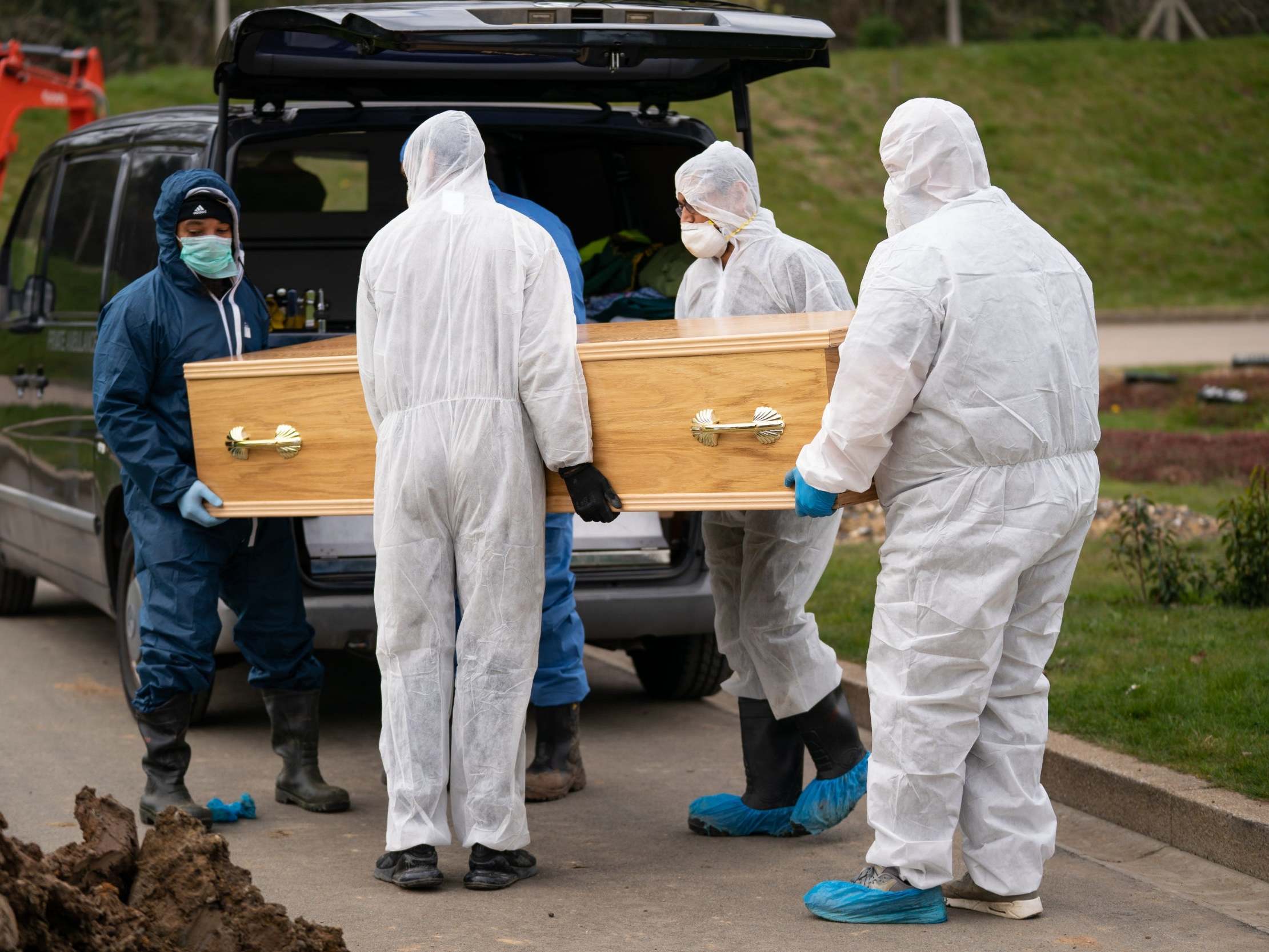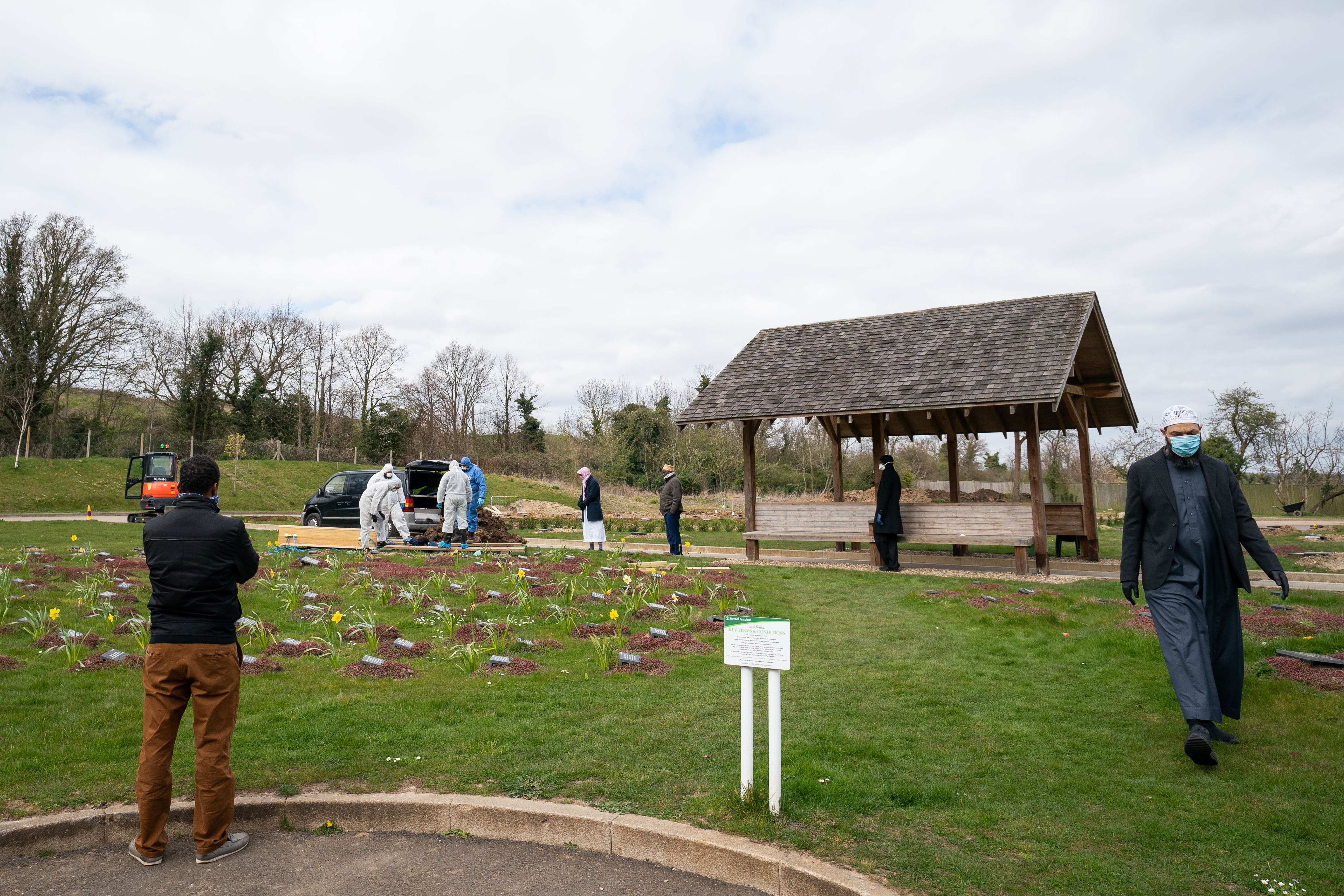Misplaced breathing tube contributed to death of UK’s first child Covid victim, coroner finds
Ismail Mohamed Abdulwahab, of Brixton, south-west London, died of acute respiratory distress syndrome, caused by Covid-19 pneumonia, in the early hours of March 30 2020

Your support helps us to tell the story
From reproductive rights to climate change to Big Tech, The Independent is on the ground when the story is developing. Whether it's investigating the financials of Elon Musk's pro-Trump PAC or producing our latest documentary, 'The A Word', which shines a light on the American women fighting for reproductive rights, we know how important it is to parse out the facts from the messaging.
At such a critical moment in US history, we need reporters on the ground. Your donation allows us to keep sending journalists to speak to both sides of the story.
The Independent is trusted by Americans across the entire political spectrum. And unlike many other quality news outlets, we choose not to lock Americans out of our reporting and analysis with paywalls. We believe quality journalism should be available to everyone, paid for by those who can afford it.
Your support makes all the difference.A misplaced breathing tube contributed to the death of a 13-year-old boy who became the UK’s first known child victim of coronavirus, a coroner has found.
Ismail Mohamed Abdulwahab, of Brixton, south-west London, died of acute respiratory distress syndrome, caused by Covid-19 pneumonia, in the early hours of March 30 2020, three days after testing positive for coronavirus.
He suffered a cardiac arrest before he died.

Hours before Ismail’s death, an endotracheal tube (ET) used to help patients breathe was found to be in the wrong position and a decision was made by a consultant in paediatric intensive care to leave it and monitor him.
Senior Coroner Andrew Harris said: “I am satisfied that he (Ismail) would not have died when he did were it not for the tube misplacement.”
Mr Harris said “misplaced ET” and “high BMI” should be recorded under ARDS and Covid-9 pneumonia on Ismail’s death certificate.
However, he made it clear that although the tube’s positioning contributed to Ismail’s death, he did not find that the boy would not have died at another time had there been no misplacement.
“Ismail died from complications of necessary medical treatment for a natural disease,” the coroner said.
A statement made by Ismail’s eldest sister, read out in court, described him as a “kind and genuine soul”.
She told the inquest a phone call was received hours before Ismail’s death asking for a family member to go to see him.
“Once we arrived, we were met with the dreadful, shocking and sad news of his passing,” she said.
“We are overwhelmed with grief by his passing.”
The inquest heard from Dr Tushar Vince, a consultant in paediatric intensive care at King’s College Hospital, who treated Ismail, already intubated, on March 29.
The court heard she saw an X-ray of Ismail’s chest.
Asked during her evidence on Wednesday what it showed about the position of the tube, she said: “It’s too high.
“I fully accept I just didn’t see. I was so focused on the lungs I just didn’t see how high this tube was and I’m so sorry that I didn’t see it.”
She added: “It was a real oversight that I did not see the tip of this tube.”
Another paediatric doctor, Anuj Khatri, pointed out to Dr Vince that the tube was too high but, after a conversation about the risks of moving and not moving the ET, she decided not to reposition it, the court heard.
Dr Vince told the coroner Ismail was “improving” at the time and she felt it was a “safer option” to leave him be and monitor him.
Mr Harris found that the consultant’s decision was made based on inadequate information after her “admitted failure” to inspect the tube’s position on the X-ray.
He said it was Dr Vince’s evidence that she would have pushed the tube down had she appreciated its “true position”.
Dr Vince told the inquest it would be “reasonable to consider” putting the misplacement of the breathing tube on the death certificate.
Asked by the coroner what the cause of Ismail’s cardiac arrest was, Dr Vince said: “At a basic level, clearly the fact that the tube was not in the correct place has contributed to this.”
Giving evidence on Wednesday, Dr Khatri told the court he did not agree with his colleague’s decision not to adjust the tube but accepted he did not challenge it.
Professor Akash Deep, a leading paediatric consultant, said the “dislodged” tube was the “tipping point” for Ismail’s death.
He said during his evidence on Wednesday, and this was accepted by the coroner as the most likely explanation, that movement of Ismail could have caused the breathing tube to reposition higher up the boy’s trachea and curl in the back of his mouth without changing its position externally.
Mr Harris said the hospital was under “unprecedented pressures” from the first wave of the pandemic and that, despite “demands previously unknown” and “understandably terrified” staff, Ismail was provided with continuous intensive care.
He said he hopes the inquest will allow the family to “rebuild” their lives.
Ismail’s family were not able to be with him when he died in King’s College Hospital and were also unable to attend his funeral as they were self-isolating after some of his siblings contracted symptoms of Covid-19.
His funeral was held at the Eternal Gardens dedicated Muslim burial ground in Kemnal Park, Chislehurst, and was attended by mourners who all stood apart from each other, observing social distancing guidelines.
The 13-year-old’s coffin was lowered into the ground by four people wearing protective clothing and face masks.
Matt Hancock, who was the health secretary and the father of a 13-year-old child himself, said Ismail dying without a parent at his bedside “made me weep”.
And King Charles, then the prince of Wales, said in April 2020 he was “utterly heartbroken” by the teenager’s plight.
Ismail tested positive for Covid-19 in March 2020 and was admitted to King’s College Hospital after suffering fever, coughing, shortness of breath, vomiting and diarrhoea. He had no apparent underlying health conditions but died after his lungs failed and he went into cardiac arrest.
The family said in a statement shortly after his death: “We are heartbroken as a family due to the devastation caused by the coronavirus as it becomes too real for us as a family and community.
“Ismail was a loving son, brother, nephew to our family and a friend to many people who knew him. His smile was heartwarming and he was always gentle and kind.”
They said his death was “very painful” but they were “comforted by our belief that every life shall taste death and the fact that we have no say when or how this will come about”.



Join our commenting forum
Join thought-provoking conversations, follow other Independent readers and see their replies
Comments